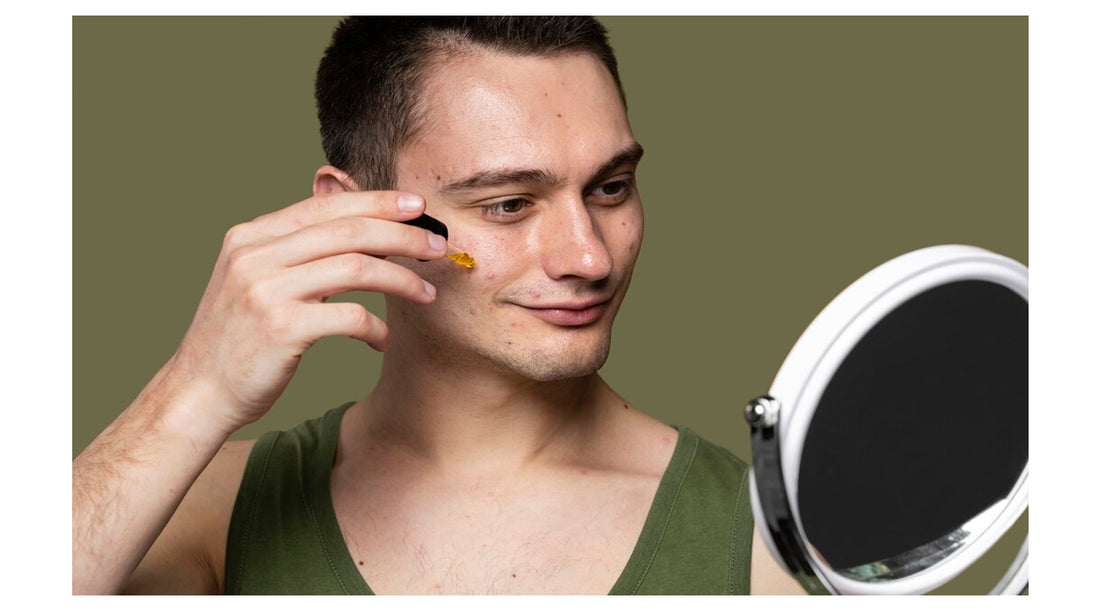Acne is one of the most common skin conditions, affecting people of all ages and backgrounds. It's often embarrassing and can be difficult to treat. Fortunately, there are natural remedies that can be used to help alleviate and reduce acne breakouts. One of the most popular and effective is safflower oil. For centuries, safflower oil has been used to soothe skin irritation, reduce inflammation, and heal damaged skin. In this comprehensive guide, we'll be exploring the many ways in which safflower oil can help treat acne, including its anti-inflammatory properties, its ability to balance oil production, and its healing properties. So, if you're looking for a natural, effective remedy for acne, this guide is for you!
What is Safflower Oil?
Safflower oil is extracted from the seeds of the safflower plant. This plant is commonly grown in parts of Asia and Southern Europe. The seeds are rich in vitamins, antioxidants, and minerals; they are also nutrient-dense, meaning they contain a high amount of vitamins and minerals per serving. Safflower oil has been used to treat a range of skin conditions, including eczema, psoriasis, and acne. Safflower oil is rich in Vitamin E, which can help protect and repair skin cells. It's also rich in linoleic acid, which is an essential fatty acid that can help reduce acne by balancing oil production. Safflower oil is non-comedogenic, so it's often used as an alternative to other acne treatments that can clog pores and cause breakouts.
How Does Safflower Oil Help Treat Acne?
- Anti-inflammatory Properties: Safflower oil can help reduce inflammation as a result of acne breakouts. It's anti-inflammatory properties can be attributed to the high levels of Vitamin E found in the oil, which can help soothe red, irritated skin caused by acne. Safflower oil can be applied topically to reduce inflammation, making it an ideal acne treatment.
- Balances Oil Production: As mentioned, safflower oil is rich in linoleic acid, which can help balance oil production. If your skin is producing too much oil, it can result in acne breakouts, particularly in areas with large pores, like your face, back, and chest. Safflower oil helps regulate and reduce oil production, making it an excellent remedy for problematic and acne-prone skin.
- Promotes Healing: Safflower oil has powerful anti-oxidant properties that can promote healing. Disorders like cystic acne are often difficult to treat because the acne pimples are under the skin's surface, making them hard to reach. Safflower oil can be applied topically to help reduce healing time and promote skin cell regeneration.
How to Use Safflower Oil for Acne
To use safflower oil for acne, you can apply it to your skin in several ways:
- Pre-treatment: Safflower oil can be applied to areas affected by acne as a pre-treatment before applying a pore-targeted acne product. This can help increase the effectiveness of your acne treatment.
- Post-treatment: Safflower oil can be applied to acne-affected areas after cleansing and toning. This can help reduce inflammation, regulate oil production, and promote healing.
- Leave-on mask: Safflower oil can be mixed with other ingredients, like activated charcoal or clay, to create a blackhead or acne-fighting mask that can be left on for 15-20 minutes before rinsing off with water.
Precautions When Using Safflower Oil
Safflower oil is generally safe to use. It is non-comedogenic, meaning it is unlikely to cause acne breakouts. However, as with all acne treatments, it's best to talk to your doctor before using it to rule out any allergies. Some people report that applying safflower oil overnight can cause dry skin when applied in large amounts. It's best to apply a thin layer of the oil and avoid applying a large amount to your skin to avoid dryness. If you plan on applying safflower oil to your face, be sure not to get it in your eyes. It's also important to avoid applying safflower oil to broken or irritated skin.
Conclusion
Safflower oil is an effective and safe way to treat acne. It is rich in Vitamin E and linoleic acid, which help regulate oil production and promote healing. Safflower oil is non-comedogenic, which means it is unlikely to cause breakouts. It can be applied topically as a pre-treatment or post-treatment, or in the form of a leave-on mask to help soothe and treat acne. Safflower oil is a great, all-natural alternative to acne treatments that contain harsh chemicals or allergens.
